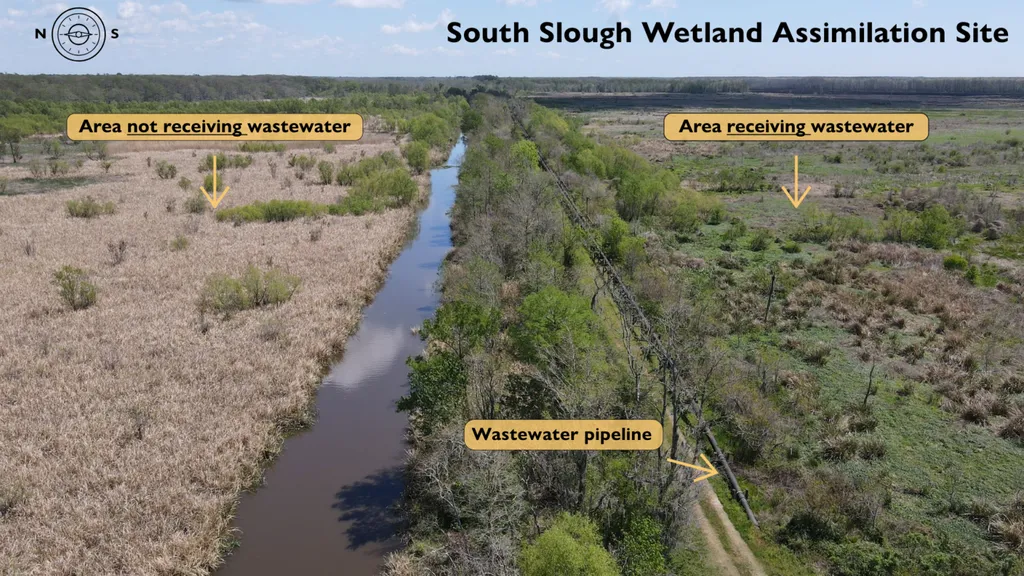In the heart of Louisiana, a team of researchers led by Mysha Ahmed from the School of Plant, Environmental and Soil Sciences at Louisiana State University is tackling a pressing environmental challenge: agricultural runoff. Their work, recently published in the *Journal of Agriculture and Food Research* (translated to English as *Journal of Agriculture and Food Research*), offers a promising solution to a problem that has long plagued farmers and environmentalists alike.
Agricultural runoff, laden with excess nitrates and phosphates from fertilizers, poses a significant threat to water quality and ecosystems. Traditional methods of mitigation, such as improved fertilizer management and runoff collection, have proven insufficient. Advanced technologies like reverse osmosis and activated carbon adsorption are effective but costly and energy-intensive, limiting their widespread adoption.
Enter waste valorization, a sustainable alternative that transforms non-hazardous industrial byproducts and agricultural residues into low-cost biosorbents. These materials, ranging from fly ash and casting sands to rice husks and sugarcane bagasse, can capture nutrients directly at the source, offering a more economical and environmentally friendly solution.
Ahmed and her team have reviewed the performance of these recycled byproducts, analyzing the chemical and microbial mechanisms behind nutrient adsorption and denitrification. Their findings highlight the potential of these materials to enhance water quality and promote circular economy practices.
“The beauty of this approach lies in its dual benefit,” Ahmed explains. “Not only does it address the critical issue of nutrient pollution, but it also provides a sustainable use for industrial and agricultural waste, reducing the need for costly disposal methods.”
The economic feasibility and scalability of these materials are also assessed in the study. While the research is promising, Ahmed emphasizes the need for further field-scale validation to optimize longevity and minimize unintended environmental consequences.
“This research is a stepping stone,” Ahmed notes. “It opens up new avenues for innovation and policy development in sustainable agriculture. By advancing waste-derived biosorbents, we can make significant strides in water quality management and resource efficiency.”
The implications for the energy sector are also noteworthy. As the world shifts towards renewable energy sources, the demand for sustainable and efficient waste management solutions is set to rise. Waste valorization offers a viable path forward, transforming waste into valuable resources and contributing to a more circular economy.
In the quest for sustainable agriculture and environmental protection, Ahmed’s research shines a light on the potential of waste valorization. As she and her team continue to explore this promising field, the future of nutrient management looks increasingly bright.

